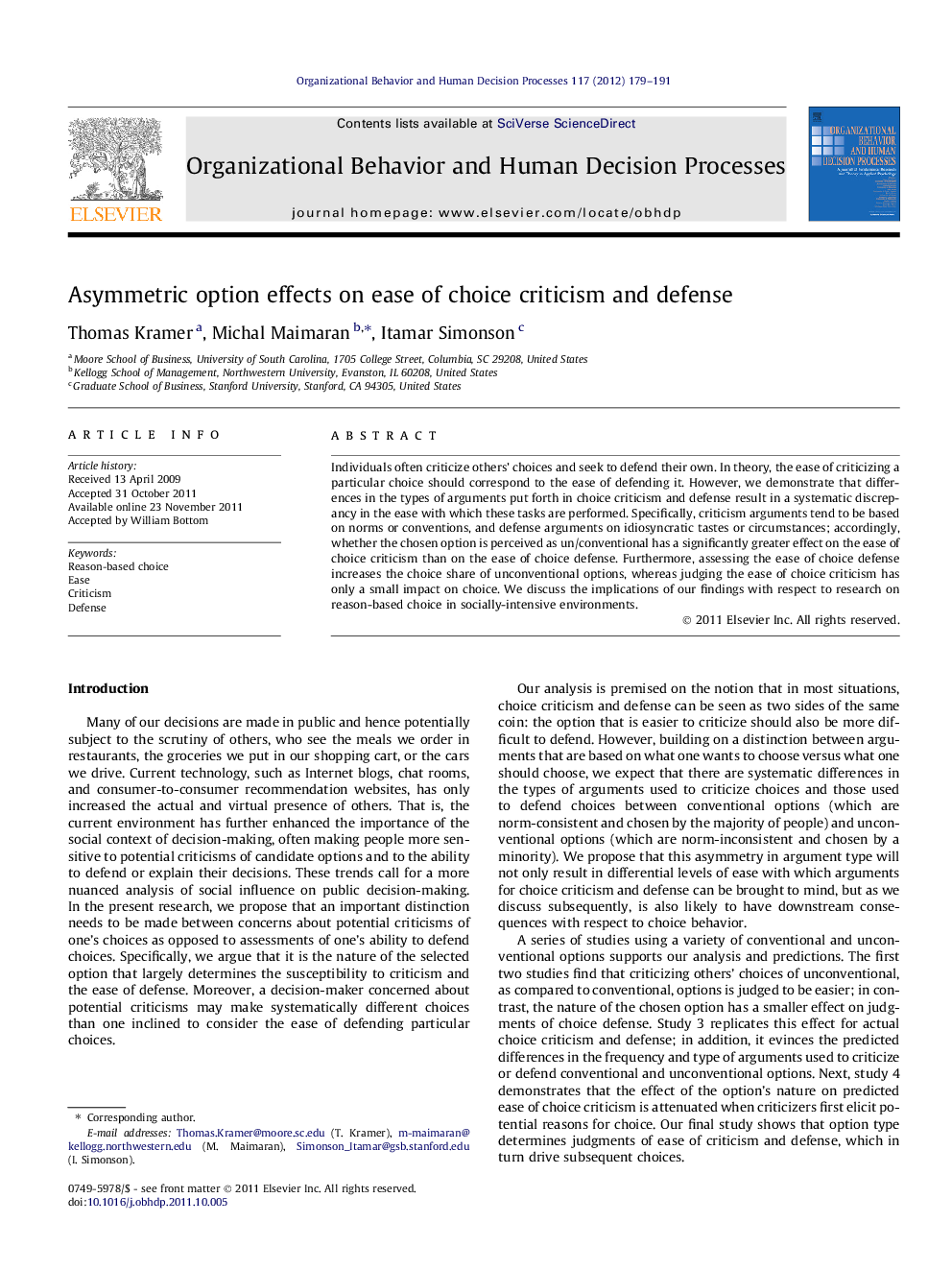| Article ID | Journal | Published Year | Pages | File Type |
|---|---|---|---|---|
| 888718 | Organizational Behavior and Human Decision Processes | 2012 | 13 Pages |
Individuals often criticize others’ choices and seek to defend their own. In theory, the ease of criticizing a particular choice should correspond to the ease of defending it. However, we demonstrate that differences in the types of arguments put forth in choice criticism and defense result in a systematic discrepancy in the ease with which these tasks are performed. Specifically, criticism arguments tend to be based on norms or conventions, and defense arguments on idiosyncratic tastes or circumstances; accordingly, whether the chosen option is perceived as un/conventional has a significantly greater effect on the ease of choice criticism than on the ease of choice defense. Furthermore, assessing the ease of choice defense increases the choice share of unconventional options, whereas judging the ease of choice criticism has only a small impact on choice. We discuss the implications of our findings with respect to research on reason-based choice in socially-intensive environments.
► Type of arguments put forth determines the ease of choice criticism and defense. ► Criticism is based on norms/conventions, defense on tastes/circumstances. ► (Un-)conventional nature of options impacts criticism ease more than defense ease. ► Assessing defense ease increases choice share of unconventional options. ► Assessing criticism ease has only a small impact on choice.
